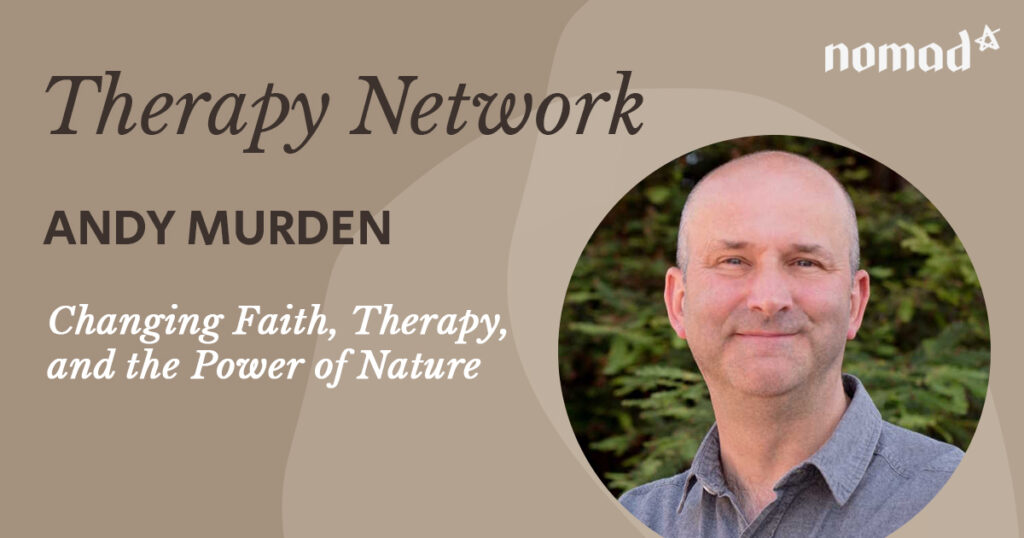As I write, I recall an experience of pure joy. Stepping outside early one morning I spotted a sparrowhawk perched atop a tall tree. I watched her for several minutes, marvelling at the barred markings on her chest and reflecting on the privilege of seeing this elusive bird just metres from my front door. Suddenly, she launched herself from her branch and swooped into a thicket in pursuit of a blackbird. The scene erupted with avian alarm calls as a dozen small birds shot out of the thicket as fast as their tiny wings could carry them.

For me, this was a moment of ‘joy unspeakable and full of glory’ just as much as moments of ecstasy experienced in worship. In fact, moments like this now seem more authentic, more physical, more rooted in my body and in the reality of being a flesh-and-blood creature in this world of wind and rain, grass and mud, skin and bones. In contrast, the moments of joy I spent 30 years chasing in charismatic worship and personal prayer times now seem disembodied, shallow, and disconnected from my authentic self.
I was born into evangelical Christianity. My father was a church pastor and life revolved around church meetings at the building and in our home. At university I attended Baptist then Charismatic Anglican churches, finally settling in a charismatic ‘house church’ in which I was immersed for the best part of 30 years. I was all in for the vision and the community life, including street evangelism, wild worship meetings, a variety of ministry roles, and some wonderful friendships. My faith began to change shape from about 2012, slowly at first. A rejection of penal substitutionary atonement was followed by embracing universal reconciliation, along with an egalitarian view of gender roles, and affirmation of LGBTQI+ people in the church.
These and other local issues led to my wife and I leaving the charismatic church in 2016 (which turned out to be more traumatic than we imagined) and we’re now part of a small and inclusive Anglican church. Through the Covid pandemic and beyond my beliefs continued to unravel. These days, when I am pushed to describe my faith I would say something like Christian agnostic – or should that be agnostic Christian? I no longer believe the Bible is inerrant or infallible, rather that it is an ancient text recording the struggle of humans to comprehend the mystery of existence. I have been immersed in Christianity since the cradle, but it’s hard to say what I actually believe about God anymore, or even if I believe in any kind of God. Christianity has given me some of the best and the worst experiences of my life. I’m currently pretty ambivalent about it but can’t quite bring myself to reject it. I’m stuck with one foot in Christianity and one foot in atheism and slowly learning to live with the uncertainty of this. These days prayer looks like a walk down a muddy path beside a field, watching a family of buzzards soaring in the wind, or quietly weeding my allotment. But I still find some meaning and grounding in the pattern and words of a liturgical church service.
And then there’s therapy. From 2019 to 2022 I trained (and qualified!) as a therapeutic counsellor in the humanistic, person-centred approach, which included plenty of personal therapy. This gave me many opportunities for self-reflection and helped me learn to trust my own inner voice for direction rather than look outside to others or to God. In the past I sometimes found myself conflicted between what my inner voice was telling me and what I thought God was telling me. Therapy helped me to become more aware of the things that are most important to me and to allow myself time to enjoy them. I am more in tune with my emotions and my body, more able to recognise what they are trying to tell me. In learning to trust myself I sense I am beginning to live a less conflicted and more authentic life.
I have a full-time job as a project manager and, as I only have space for a few counselling clients, I specialise in supporting those who are undergoing deconstruction or working through negative experiences of religion. As you can see from my sparrowhawk story, I am also a passionate believer in the mental health benefits of deepening our connection with the more-than-human world, which led me in 2022 to train as a nature-based health and well-being practitioner. I am not an expert who will sort your problems out for you. But I can help you to explore your own issues, feelings, beliefs, behaviours and worldview, so you can become more self-aware and achieve greater confidence and autonomy.
